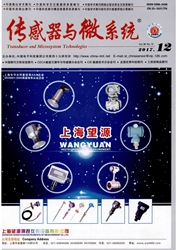

 中文摘要:
中文摘要:
针对无线传感器网络锚节点稀疏条件下节点定位中存在的翻转现象和定位精度问题,提出了一种基于MCB的自适应和声搜索定位算法。通过引入MCB算法中的采样思想,随机产生网络拓扑约束下的未知节点的坐标,引入自适应的和声保留概率和音调调节概率,达到提高搜索能力和定位精度目的。仿真结果表明:算法能有效解决翻转现象,提高定位精度,提出的算法在定位精度和计算量方面优于对比算法。
 英文摘要:
英文摘要:
Aiming at problem of flip ambiguity and localization precision, a self-adaptive harmony search algorithm for wireless sensor networks (WSNs) node localization is proposed. Based on the Sampling Theory of Monte Carlo localization boxed ( MCB), the coordinates of unknown nodes are generated randomly under the restriction of the network topology constraints, in order to improve the search ability and the localization precision, introduce adaptive harmony memory considering rate (HMCR) and pitch adjusting rate (PAR). Simulation results show that the algorithm can effectively address the flip ambiguity and improve the localization precision, and the algorithm outperforms,in terms of localization precision and computational complexity compared with otherst.
 同期刊论文项目
同期刊论文项目
 同项目期刊论文
同项目期刊论文
 Optimizing sphericallight-emitting diode array for highly uniform illumination distribution byemploy
Optimizing sphericallight-emitting diode array for highly uniform illumination distribution byemploy A self-organization particle swarm optimization algorithm based on L norm multi-measurement diversit
A self-organization particle swarm optimization algorithm based on L norm multi-measurement diversit A novel gravitationalacceleration enhanced particle swarm optimization algorithm for wind-thermaleco
A novel gravitationalacceleration enhanced particle swarm optimization algorithm for wind-thermaleco A new design method foradaptive IIR system identification using hybrid particle swarm optimization a
A new design method foradaptive IIR system identification using hybrid particle swarm optimization a Robust H-infinity guaranteed cost control for uncertain switched descriptor delayed systems with non
Robust H-infinity guaranteed cost control for uncertain switched descriptor delayed systems with non 期刊信息
期刊信息
